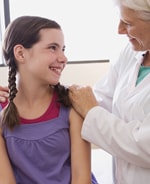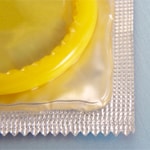
STD Prevention
Arm yourself with basic information about STDs: How are these diseases spread? How can you protect yourself? What are the treatment options? Learn the answers to these questions by reading the STD Fact Sheets.
Take Control
You have the facts; now protect yourself and your sexual partners. Effective strategies for reducing STD risk include:
Abstinence:
 |
The most reliable way to avoid infection is to not have sex (i.e., anal, vaginal or oral).
Vaccination:
 |
Vaccines are safe, effective, and recommended ways to prevent hepatitis B and HPV. HPV vaccines for males and females can protect against some of the most common types of HPV. It is best to get all three doses (shots) before becoming sexually active. However, HPV vaccines are recommended for all teen girls and women through age 26 and all teen boys and men through age 21, who did not get all three doses of the vaccine when they were younger. You should also get vaccinated for hepatitis B if you were not vaccinated when you were younger.
Mutual monogamy:
 |
Mutual monogamy means that you agree to be sexually active with only one person, who has agreed to be sexually active only with you. Being in a long-term mutually monogamous relationship with an uninfected partner is one of the most reliable ways to avoid STDs. But you must both be certain you are not infected with STDs. It is important to have an open and honest conversation with your partner.
Reduced number of sex partners:
 |
Reducing your number of sex partners can decrease your risk for STDs. It is still important that you and your partner get tested, and that you share your test results with one another.
Condoms:
 |
Correct and consistent use of the male latex condom is highly effective in reducing STD transmission. Use a condom every time you have anal, vaginal, or oral sex.
Put Yourself to the Test
Knowing your STD status is a critical step to stopping STD transmission. If you know you are infected you can take steps to protect yourself and your partners.
Many STDs can be easily diagnosed and treated. If either you or your partner is infected, both of you need to receive treatment at the same time to avoid getting re-infected.
Click here for information on STD testing at the Health Department.

